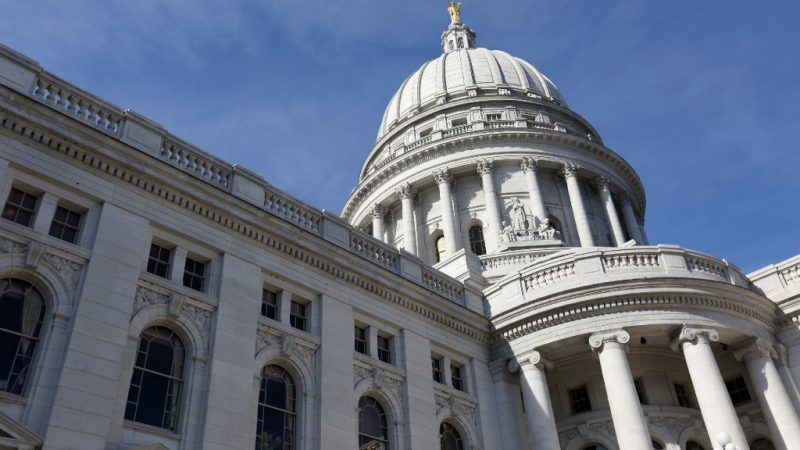An Amery tavern is weighing its options after a Barron County judge cleared the way for enforcement of the Evers administration’s order limiting indoor, public gatherings to 25 percent of a room’s capacity.
Gov. Tony Evers, meanwhile, hailed the decision as an important ruling that will help prevent the spread of COVID-19.
“This crisis is urgent,” Evers said. “Wisconsinites, stay home. Limit travel and going to gatherings, and please wear a face covering whenever you have to go out.”
The limit on public indoor gatherings, issued by Health Services Secretary Andrea Palm, had been on hold since the middle of last week, when a different judge granted the Tavern League’s request for a temporary restraining order as part of its lawsuit.
>> WisPolitics is now on the State Affairs network. Get custom keyword notifications, bill tracking and all WisPolitics content. Get the app or access via desktop.
League attorney Josh Johanningmeier said during a hearing yesterday bars would go out of business if the order was in effect through Nov. 6 as originally envisioned by the Evers administration.
But Barron County Judge James Babler said none of the evidence that had been presented to him showed that anyone had lost business due to the order, and he rejected a request for a longer injunction. He also said there was no evidence it was being enforced.
Johanningmeier protested that bars faced civil forfeitures of $500 if they didn’t comply with Palm’s order, and an injunction was needed to allow them to keep operating as they had before the directive was issued.
Meanwhile, Misha Tseytlin told Babler that The Mix Up, the Amery bar he represents, suffered a 50 percent reduction in sales between when Palm released the order and the Sawyer County judge issued a temporary restraining order preventing its enforcement. He argued patrons stayed away because they weren’t sure they’d be able to enter the bar once they showed up.
“The people had been deterred by the very order,” he argued.
But Babler was unpersuaded, noting the news has been filled with reports on the spike of COVID-19 cases in Wisconsin.
“How do I know it’s not just general news reports or word of mouth that I shouldn’t go anywhere because I don’t want to catch COVID?” he said.
The suit argued Palm’s directive on capacity limits violated a 4-3 May state Supreme Court decision that overturned an extended stay-at-home order she issued this spring. That ruling reigned in her powers and found the directive should’ve been issued through the administrative rules process, which gives lawmakers oversight of the process.
Babler noted the decision also left untouched other DHS secretary powers, and he peppered attorneys with questions about the May ruling and its applicability to the new order. In the end, he found Palm still had the power to issue the new directive and said he wished there were more clarity from the Supreme Court on the issue.
Babler also rejected a request from those challenging the order to stay his order in case plaintiffs want to file an emergency appeal.
Liz Sieben, owner of The Mix Up, referred questions to her attorneys. Tseytlin wrote in an email to WisPolitics.com that a decision on whether to appeal hadn’t been made yet.
Meanwhile, the Tavern League indicated it won’t appeal.
“We are obviously disappointed in the ruling and the catastrophic effects it will continue to have on small businesses across Wisconsin,” said Tavern League President Chris Marsicano. “We will continue to operate observing the best practices of the WEDC to provide a safe environment for our employees and customers.”
The case was originally assigned to Sawyer County Judge John Yackel, and he quickly issued a temporary restraining order last week preventing enforcement of the order without first giving the Evers administration the opportunity to weigh in.
The same day Yackel handed down his order, the state Department of Justice filed a request to have the case reassigned. Those requests are automatically granted, and since Yackel is the only judge for Sawyer County, it was turned over to Bayfield County Judge John Anderson. The Tavern League then filed a substitution request of its own, which resulted in the case landing with Babler.
Babler said that issuing a temporary restraining order without first hearing from the defendant is “disfavored.” While he said the Tavern League’s brief was well written, he didn’t believe Yackel should’ve granted the temporary restraining order.



